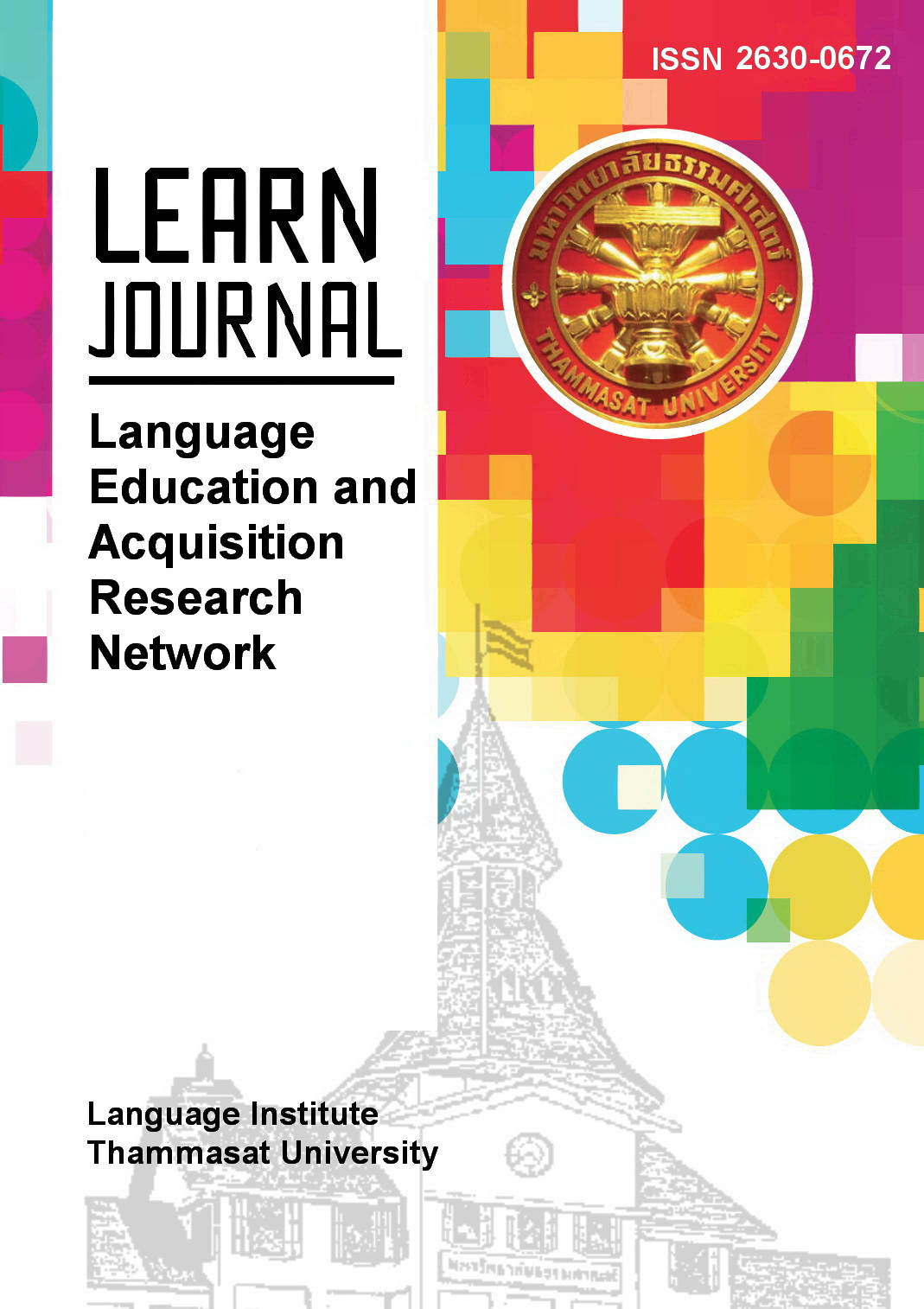The Use of Facebook in a TEFL Program Based on the TPACK Framework
Main Article Content
Abstract
Facebook is one of the networking sites and platforms that has potential for language teaching and learning in the 21st century. Underpinned by the Technological Pedagogical and Content Knowledge (TPACK) framework, this study aims to integrate the use of Facebook into a Teaching English as a Foreign Language (TEFL) program in order to promote students’ goals of English language literacy, pedagogical knowledge, and ICT skills. Through a mixed-method approach, the data was obtained from questionnaire, focus-group interviews, and individual semi-structured interviews. This study employed the TPACK framework with Facebook to measure Thai pre-service EFL teachers through a survey. To garner their views and opinions, focus-group and semi-structured interviews were conducted with selected pre-service EFL teachers and their teacher trainers, accordingly. The findings reveal that, on average, the Thai pre-service EFL teachers were able to conduct TEFL classes using Facebook at a high level; however they required supplementary skills for online teaching from their teacher trainers. Most of the teacher trainers were unable to provide such skills because they rarely used Facebook as an educational tool. A formal online training plan to supplement pedagogical skills appears unachievable at this time. Facebook is thus considered as a potentially useful means for teacher-student interactions and sociocultural interchange aspects of TEFL lessons among pre-service EFL teachers. This study sheds light on the prospective integration of educational technologies, online platforms, and English language education in the midst of 21st century and the COVID-19 global pandemic crisis.


